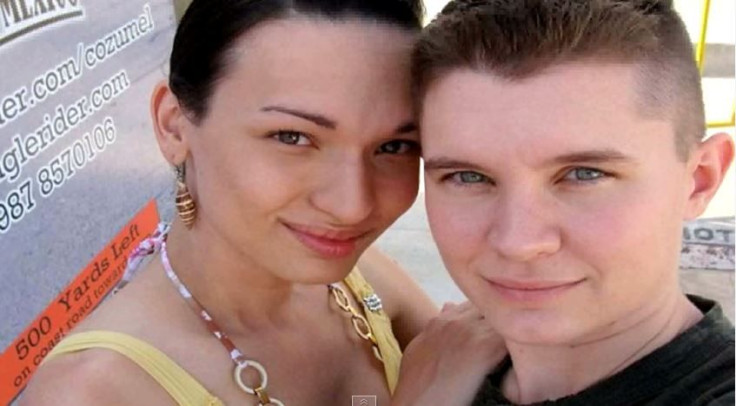Transgender Parents And Their Biological Children: The Story Of Nick And Bianca Bowser

Adoption and surrogacy are the two options for transgender couples who want children. But for Nick (born Nicole) and Bianca (born Jason) Bowser, who hadn’t yet started their respective transitions towards gender reassignment surgery, there was the still the option to conceive naturally — and so, they did.
Though Nick and Bianca were gender-nonconforming, they weren’t sold on the trials and obstacles associated with their alternative options. They decided to conceive with their "given parts,” Nick ultimately delivering their sons Kai, 3, and Pax, 17 months, via C-section. The overall process proved more difficult for Nick than Bianca, the couple said in their interview with ABC News’ 20/20.
“The almost 20 months total of my life … was probably the darkest time in my entire life,” Nick said. “My brain was telling me that I was one person. My body looks like a completely different person. It was a daily struggle between mind and body. I didn’t want to leave the house.” Shortly after surgery, however, Nick had his breasts removed.
Today, the Bowsers live with their sons in Louisville, Ky. They told ABC they fit “the basic definition of what a transgender person is,” but they live together as man and woman. Both initially came out as gay in their teens, not realizing what it was to be transgendered or aware of a transgender community until their 20s. In an interview with Ricki Lake in April 2013, Bianca admitted RuPaul helped her make her decision. While RuPaul is not transgendered, Bianca said he’s “great with who he is” and he “provided a walkway [for me] into being transgendered.”
Now, Bianca and Nick are enduring the universal struggle of parenting. Nick said, “We’re different, but we’re the same type of family everybody else is.”
It's empowering albeit unexpected to hear a story like this. And it’s equally empowering to hear from children whose parents have grown to be accepting of their transgendered identity. BuzzFeed News recently published Liam Lowery’s story, in which his mother reacts poorly to his coming out as transgender. Yet, Lowery told BuzzFeed years later, his mother (and father) not only learned to be more understand and accepting, but she explained her initial reaction was a result of the “misguided belief that people who identified as transgender would be forced into narrow and dangerous lives.”
Lowery’s mother wasn’t wrong. The Office of Disease Prevention and Health Promotion reported transgender people face societal stigma, discrimination, and denial of their civil and human rights. This discrimination and denial is also associated with psychiatric disorders, substance abuse, suicide, and violence. With respect to suicide, the Los Angeles Times reported the suicide rate is exceptionally high among the transgender community, with 46 percent of all transgender people making an attempt at least once in their life.
Just look at Leelah Alcorn. Alcorn, a transgender teen, recently committed suicide by stepping in front of a semi-truck — reasons for which were outlined in a suicide note that went viral after posting to her Tumblr. Her mother, she explained, took her to Christian therapists who told her she was "selfish and wrong and that I should look to God for help." Alcorn never get the support or help she needed for both her decisions and depression. Without improved education, Alcorn, and those like her, won't know that it is possible to be accepted and, more importantly, happy.
It's why Jill Soloway, creator of Amazon Prime’s TV series Transparent, accepted the show’s Golden Globe for best television series, comedy or musical, in memory of Alcorn and the "too many trans people who die too young." Soloway herself has a trans parent, "my moppa," whom she thanked for "coming out because in doing so you made a break for freedom, you told your truth, you taught me how to tell my truth and make this show."
From Kentucky to Hollywood, an urgent conversation regarding just how important it is to foster an understanding and acceptance of the transgender community is starting to happen. By acknowledging realities, like that of the Bowsers and Soloway, the transgender community will experience a reduction in disease transmission and progression, health care costs, as well as increased mental and physical well-being.
After all, gender is a state of mind. Discussing it as such will bring us all closer to equality.
Published by Medicaldaily.com



























